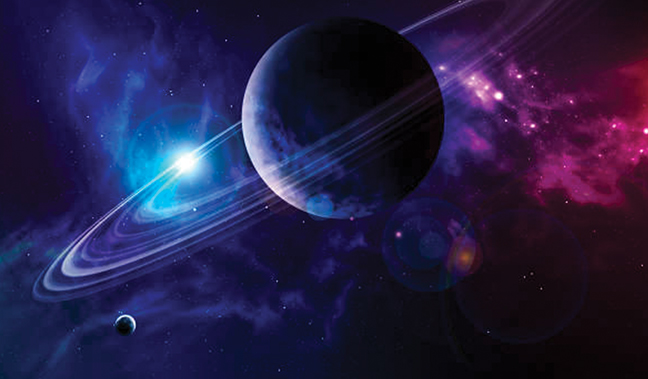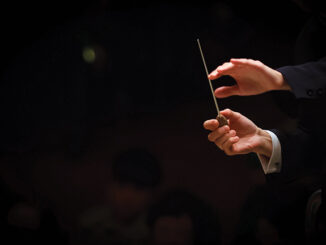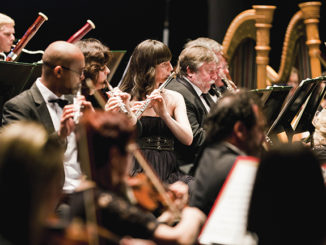
Feb-yoo-ere or feb-roo-ere. Either pronunciation works fine, according to Webster and Google.
Other months, like January, are named after Roman gods. So why wouldn’t February be known after the Roman god Februus? Instead, the word February is derived from a Roman festival of purification known as Februa, during which time people were ritually washed.
When February was first added to the calendar, along with January in 700 B.C. by Numa Pompilius, it became the last month of the year. Pompilius added these two last months to line up with the lunar cycle. However, historians tell us that the Romans believed odd numbers to be lucky. Since February ended up being the unlucky one, it was placed at the end and shortened so the bad luck wouldn’t last long.
February remained at the end of the calendar for just short of 200 years. Then both January and February were moved back to the beginning of the year.
Before we adopted the Latin name for our second month now known as February, the English had other more colorful descriptions. We’re told the most common Old English name was Solmonath, which means Mud Month. Another term was Kale-monath, or Cabbage Month.
A MONTH RICH IN MUSIC
The list is extensive and includes such notables as Michael Praetorius (1571), Arcangello Corelli (1653), George Frederck Handel (1685). Luigi Boccherini (1743), Gioachino Rossini (1742), Felix Mendelssohn (1809). Leo Delibes (1836) and Alban Berg (1885). A trail-blazing composer who was born and lives in our time is John Adams, born John Coolidge Adams in Worchester, Massachusetts on Feb. 15, 1947.
THE CHAIRMAN DANCES
Adams’ grandfather ran a dance hall. John Adams’ family didn’t own a television, and didn’t have a record player until he was ten. However, both his parents were musicians: his mother was a singer with the big bands, and his father was a clarinetist. Adams himself took up the clarinet in a serious way in the third grade, initially taking lessons from his father.
He grew up immersed in an environment of jazz Americana and Broadway musicals, once meeting Duke Ellington at his grandfather’s dance hall. Adams began composing at age ten and first heard his music performed as a teenager. Following graduation from high school, he enrolled in Harvard University, earning a Master of Arts in 1971, studying composition under many prominent composers including Roger Sessions.
The first time I heard of John Adams was while I was at WKU Public Radio, either hosting “Music in the Morning” or “Afternoon Concert.” I found his music to be immediately captivating. Often he wrote for full orchestral forces driven by a toe-tapping line in the basses or percussion. Many of his pieces tell interesting stories.
The most memorable for me is the “outtake” from Act Three of an opera Adams was working on at the time (1985), called “Nixon in China.” The opera excerpt, running about 13 minutes, is titled “The Chairman Dances.” The music depicts Madame Mao gate-crashing a presidential banquet. She hangs paper lanterns and performs a seductive dance. Chairman Mao descends from his large portrait on the wall, and the two dance a foxtrot back in time together. The piece ends with the sound of a gramophone winding down.
John Adams shares some of his thoughts about “The Chairman Dances” – “I started somewhat hazily working on this music, not knowing if it had the right tone, and pretty soon I realized it wouldn’t work at all for the opera… The piece was a parody of what I imagined Chinese movie music of the ’30s sounded like… It was a vast fantasy of a slightly ridiculous but irresistible image of a youthful Mao Tse Tung dancing the foxtrot with the former movie queen and future Madame Mao… The music portrays the mind and spirit behind the Cultural Revolution…”
HARDIN AND HOLST
Sitting near the crest of the Hill is a round, classic, white 1967 architectural icon, WKU’s Hardin Planetarium. Beneath Hardin’s full 40-foot dome we’re treated to a 360-degree surround view of the heavens at night delivered by a Digitalis Epsilon digital projector. While easily respecting social distancing, we can marvel at the multi-millions of stars, trace out constellations and wonder at the relatively nearby planets in our own solar system.
Hardin Planetarium is one of only 74 locations in the world to receive a special new banner from the Hubble Space Science team on their 30th anniversary. Lithographs will be handed out to the first few 100.
The planetarium’s current star show is called “Perseverance to Reach Mars,” concluding Thursday, Feb. 18. That’s the date when NASA’s rover called Perseverance is scheduled to reach Mars to begin its search for signs of ancient microbial life and characterize environmental conditions that could affect future astronauts living and working on Mars. Perseverance will be only the fifth rover to attempt landing on Mars, when less than 50 percent of the missions ever sent to Mars by any space agency have been successful. Interesting stuff.
Hardin Planetarium custom-designs most of their own shows. All are, or include, interactive performances. Shows begin promptly at 7pm Tuesdays and Thursdays with a Sunday matinee at 2pm. No prior reservations are accepted. Properly worn masks are required. Arrive at least 15 minutes before show time. Admission is free.
Composer Gustav Holst probably loved to gaze at the night sky as he saw it over his homeland, England. Holst is best known for his major orchestral work “The Planets.” Seven planets are described in the score. Planet Earth was not included. Pluto was not discovered at the time “The Planets” was written.
The premiere took place on short notice in 1918, at the conclusion of World War I. It was hastily rehearsed. The orchestra saw the complicated score two hours before the performance. The choir for the planet Neptune was recruited from pupils at Morley College.
Here is how Holst structurally ordered his musical Planets: Mars, Bringer of War; Venus, Bringer of Peace; Mercury, the Winged Messenger; Jupiter, Bringer of Jollity; Saturn, Bringer of Old Age; Uranus, the Magician; and Neptune, the Mystic.
This majestic music of Gustav Holst drifts across the back of my mind and even surrounds me as I sit in Hardin Planetarium and contemplate a clear February night sky projected around me. It’s an experience you might consider.
-by Lee Stott
About the Author: Lee Stott is retired from WKU Public Radio, lives near Franklin with his daughter Cindy Wade’s family and has 30 grandchildren and seven great-grandchildren.







